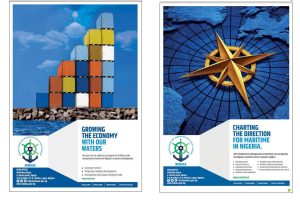

CUSTOMS GENERATES HIGHEST REVENUE OF N6.105 TRILLION SINCE 1891, TARGETS N6.58 TRILLION THIS YEAR—ADENIYI

No less than N6.105 trillion was generated by the Nigeria customs service last year, the highest since 1891
REVENUE PERFORMANCE
Distinguished ladies and gentlemen, I am pleased to announce that the Nigeria Customs Service has again recorded another unprecedented performance in revenue collection for the year 2024. The Service collected a total sum of ₦6,105,315,543,489.50 (Six Trillion, One Hundred and Five Billion, Three Hundred and Fifteen Million, Five Hundred and Forty-Three Thousand, Four Hundred and Eighty-Nine Naira, Fifty Kobo), surpassing our target of ₦5,079,069,866,085.50 by ₦1,026,245,677,404.00, representing a 20.2% increase above the target.
This remarkable achievement represents a significant 90.4% increase from our 2023 collection of ₦3,206,583,002,675.65. The growth is historic as it marks the highest Year-on-Year increase recorded by the Service in recent times, surpassing the 52.24% growth recorded in 2022 by 38.18 percentage points. Additionally, the Service achieved another milestone in October 2024 by recording the highest monthly collection ever of ₦603,171,859,991.97.
The total revenue collected for 2024 comprises three main components:
a. Federation Account Collections. The sum of ₦3,657,063,981,445.42 was collected into the Federation Account, consisting of Import Duty, Excise Duty, Fees, E-Auction proceeds, and CET Levy.
b. Non-Federation Account Levies. A total of ₦816,902,844,844.73 was collected as Non-Federation Account Levies.
c. Value Added Tax (VAT). The Service collected ₦1,631,348,717,199.35 as VAT on imports.
He said, It is pertinent to note that these collections were achieved despite significant concessions granted to support various sectors of the economy, totalling ₦1,682,302,648,880.67. These concessions comprised ₦723,000,081,776.68 in import duty waivers, ₦372,649,650,951.72 in other levy concessions, and ₦586,652,916,152.27 in import VAT relief. These strategic concessions were granted to stimulate economic growth, support industrial development, and enhance the overall business environment in line with government policy objectives. Notably, the 2024 concession value represents a significant reduction from the ₦3,959,868,268,993.18 recorded in 2023. This reduction is a direct result of our enhanced monitoring mechanisms and strategic reforms aimed at blocking loopholes and eliminating abuses in the concession granting process, ensuring that only genuine and qualifying enterprises benefit from these incentives.

According to him, These achievements were made possible through our continuous alignment with the policy objectives of His Excellency, President Bola Ahmed Tinubu, under the astute guidance of the Honourable Minister of Finance and Coordinating Minister of the Economy, Mr. Olawale Edun, and the support of Management and the entire staff of Nigeria Customs Service.
TRADE FACILITATION
He noted that at the beginning of 2024, the Service made several commitments towards modernizing our operations and enhancing service delivery. Despite our impressive revenue performance, we remained conscious of the need to strike a balance between revenue collection and trade facilitation. This balance was evident in our commitments at the beginning of the year and also served as a milestone for gauging performance throughout 2024. They were further reiterated during the Comptroller-General of Customs Conference held later in the year.
The trade performance data for 2024 reflects significant growth in trade value despite global economic headwinds. The Service processed imports with a Cost, Insurance, and Freight (CIF) value of ₦60.29 trillion in 2024, representing a remarkable 117.4% increase from ₦27.74 trillion in 2023. This was achieved through 1,262,988 import transactions, handling a total mass of 15.35 billion kilograms. The higher value recorded despite an 8.2% decrease in transaction volume from the previous year’s 1,376,514 transactions indicates a shift towards higher-value goods in our import trade portfolio.
The export trade performance was equally impressive, with the total CIF value rising significantly to ₦136.65 trillion in 2024 from ₦42.77 trillion in 2023, marking a 219.5% increase. While the number of export transactions remained relatively stable at 38,199 compared to 38,294 in 2023, we witnessed a substantial increase in export volume, processing 12.35 billion kilograms in 2024 compared to 3.70 billion kilograms in 2023. This 234% increase in export mass, coupled with the higher value, indicates a robust growth in our export trade and suggests increasing competitiveness of Nigerian products in the international market.
He noted that the total trade value handled by the Service in 2024 amounted to ₦196.94 trillion, compared to ₦70.50 trillion in 2023, representing a 179.3% increase. This substantial growth in trade value, achieved with fewer but more valuable transactions, is evident of the increasing sophistication of Nigeria’s international trade and the effectiveness of our trade facilitation measures.
In line with their pledge to adopt global best practices in trade facilitation, improve operational excellence, and enhance security, I am pleased to report significant progress in implementing these commitments. The Service successfully implemented various measures to enhance operational efficiency through modern procedures enabled by the new NCS Act. Let me highlight some of our key achievements and their impacts:
a. Advanced Ruling System. The Advanced Ruling system, launched in early 2024, introduced a pre-arrival classification and valuation mechanism that provides binding decisions to importers before shipment, ensuring predictability in their customs transactions. This system represents a significant shift from post-arrival classifications to pre-arrival decisions, thereby reducing delays and disputes in the clearance process. During its first year of implementation, the system recorded 60 account registrations and received 38 applications for rulings on various aspects including classification, valuation, and other clearance-related concerns. Of these applications, 15 rulings were successfully issued covering transactions worth ₦102,929,244,384 in duty paid value, while 23 applications were rejected due to various factors including insufficient information, incomplete documentation, post-importation requests, unverifiable transaction values, and unclear sales agreements. To enhance participation and understanding of this initiative, we have scheduled a comprehensive stakeholder sensitization program beginning January 15, 2025, in Lagos.
b. Authorized Economic Operator (AEO) Programme. The pilot phase of the AEO program has demonstrated significant improvements in cargo clearance times, with AEO-certified companies achieving an average release time of 43 hours, which is 5 hours better than the target clearance time of 48 hours. This represents a remarkable 66.9% reduction in cargo clearance time compared to pre-AEO status, where clearance took 5 days, and notably outperforms regular Economic Operators (EOs) who require 7 days for clearance. Given these impressive results, we are set for full implementation of the program in the first quarter of 2025.
c. Time Release Study and International Partnerships. Our comprehensive Time Release Study has been concluded, and the report is currently under review with plans for release before the second quarter of the year. Additionally, our enhanced strategic partnerships with various Customs Administrations worldwide are yielding tangible results through intelligence sharing, leading to major interceptions at our ports. These partnerships have also opened up capacity building opportunities for our officers and laid the groundwork for expanded engagements in the coming months.
d. Technological Infrastructure Advancement. In a significant stride towards digital transformation, the Service commenced pilot testing of its indigenously developed customs clearance platform with the support of our concessionaires under the Trade Modernisation Project, named ‘B’Odogwu’, in the fourth quarter of 2024. The platform, which represents a major milestone in our digital capabilities, was initially deployed at the PTML command for pilot testing. The early results have been encouraging, with the platform processing transactions resulting in an aggregate revenue collection of ₦31 billion as of December 2024. It is indeed gratifying to see how home-grown solutions are gradually enhancing our operational efficiency and ensuring seamless trade facilitation.
e. Stakeholder Engagement Initiatives. Under the framework of the global Customs community’s theme focusing on enhancing traditional and new stakeholder engagement in 2024, we intensified our engagements with existing stakeholders while forging new partnerships. We strengthened collaboration with Partner Government Agencies (PGAs) and expanded our stakeholder base through new partnerships. Notable among these was our collaboration with the Healthcare Federation of Nigeria (HFN), which led to the establishment of working relationships aimed at addressing challenges in the clearance of medical goods. This strategic partnership, supported by relevant PGAs in the health sector, aligns with President Bola Ahmed Tinubu’s administration’s policy focus on healthcare accessibility and affordability. The outcomes of these engagements have been encouraging, and we are optimistic that this collaboration will contribute significantly to making medical supplies more affordable for Nigerians through improved clearance processes and reduced administrative bottlenecks.
f. Support for SMEs and Export Trade Facilitation. In recognition of the opportunities presented by the African Continental Free Trade Agreement (AfCFTA), we implemented various trade facilitation initiatives to support Small and Medium Scale Enterprises (SMEs) and exporters. These efforts contributed significantly to the robust participation of Nigerian brands at the prestigious Biashara Afrika forum in Kigali in October 2024. It was particularly gratifying that our innovative approaches received recognition from the AfCFTA Secretariat, culminating in an invitation to share Nigeria’s experience at the forum.

He said one of the high points of our trade facilitation initiatives was the significant recognition received both locally and internationally throughout the year. Notable among these was the Service’s remarkable improvement in the Presidential Enabling Business Environment Council (PEBEC) rankings, where we advanced 33 places to emerge joint top five agencies in trade facilitation to validate our reform initiatives and tangible improvements in our cross-border trade facilitation efforts despite notable security concerns.
ANTI-SMUGGLING/ENFORCEMENT
In addition to balancing revenue collection with trade facilitation, there was also the security dimension arising from global and national actors that impacted the Service mandate to protect the society from the entry of harmful substances and the exit of restricted items. NCS adapted its strategies to these evolving security challenges resulting in the 3,555 seizures throughout the year, with a dramatic 100.92% increase in the Duty Paid Value (DPV) of seizures from ₦17.56 billion in 2023 to ₦35.29 billion in 2024. These seizures, with a Cost, Insurance, and Freight (CIF) value of ₦28.46 billion and total duty of ₦6.83 billion, highlights the scale of attempted economic sabotage prevented by the Service. The recorded seizures included traditional and emerging risks to Nigeria’s Economic and overall national Security.
Particularly noteworthy were the seizures of arms and ammunition, including 900 arms and 113,472 rounds of ammunition and the interception of narcotics and other illicit drugs, resulting in 105 seizures across various forms that was aided by the declaration of a state of emergency at our major entry points. The Service also intercepted unauthorized pharmaceutical products, with 40 seizures including 175,676 pieces and 6,271 cartons of various medicaments valued at ₦3.04 billion, protecting public health from potentially dangerous counterfeit drugs. The Service’s enforcement activities also revealed evolving patterns in environmental and wildlife crimes, with 76 seizures of animal/wildlife products valued at ₦5.93 billion. We also maintained vigilance over trade-sensitive goods, as evidenced by the seizure of 183,527 bags of rice. Additionally, significant seizures were made of other restricted items including 3,785 bales of textiles valued at ₦945.9 million, and various quantities of footwear, beverages, and other consumer goods, protecting local industries and supporting the government’s economic diversification agenda. The Service also recorded 397 seizures of vehicles valued at ₦5.64 billion, as we continue to enforce import regulations and protect government revenue.
According to him, the mounting sophistication of smuggling networks also necessitated a corresponding elevation in our enforcement capabilities, leading to enhanced collaboration with national and international partners and the deployment of advanced detection approaches. Worthy of note is the launch of operation Whirlwind with the support of the Office of the National Security Adviser (ONSA) and the Nigeria Midstream and Downstream Petroleum Regulatory Authority (NMDPRA) under the Nigeria Petroleum Corporation Limited (NNPC Ltd). This operation resulted in the seizure of significant quantities of petroleum products totalling 1,716,656 litres from saboteurs diverting petroleum products intended for home use to neighbouring countries. Most significantly, our enforcement activities have yielded 55 arrests of suspects currently under investigations as we continue to dismantle the criminal networks behind these activities. This comprehensive approach to enforcement, aligned with both national security objectives and international obligations, positions the NCS as a crucial actor in the nation’s security architecture as we continue to facilitate legitimate trade.
To further strengthen their enforcement capabilities, the Service is actively expanding its technological infrastructure through the integration of geo-spatial technology and other cutting-edge solutions. These technological advancements, coupled with capacity building and enhanced intelligence gathering mechanisms, will significantly boost our surveillance and enforcement operations. The integration of these modern tools with our existing frameworks is a strategic investment in the future of customs enforcement, to ensure that we stay ahead of emerging threats as we continue to facilitate legitimate trade.
CAPACITY DEVELOPMENT AND STRATEGIC HUMAN RESOURCE MANAGEMENT
The Service maintained its commitment to strategic human capital development throughout 2024, recognizing that our workforce remains our most valuable asset in achieving our mandate. Our capacity development initiatives were structured to enhance both individual competencies and organizational capabilities, ensuring that our officers are well-equipped to meet evolving customs administration challenges.
The CG said, In the area of career progression, we sustained our commitment to merit-based advancement through the prompt conduct of promotion exercises. I am pleased to report that 4,291 senior officers were elevated to new ranks, while 1,419 junior officers also earned their promotions, marking one of the most comprehensive promotion exercises in recent years. Notably, our career advancement programme featured the exposure of newly promoted Comptroller cadre officers to strategic leadership courses, preparing them for higher responsibilities in customs administration.
The Service strengthened its human resource base through various capacity-building initiatives. Our training programs were strategically designed to align with modern customs practices, covering areas such as risk management, post-clearance audit, valuation, classification, and enforcement techniques. We leveraged our international partnerships to expose officers to global best practices through virtual and physical training sessions with partner customs administrations.
Looking to the future, we have commenced the process of recruiting new officers to strengthen our workforce. The Service opened its recruitment portal to receive applications from prospective recruits, marking the beginning of a comprehensive exercise to inject fresh talent into our operations. This recruitment drive is strategically designed to address succession planning while bringing in needed skills for our modernization agenda.
The investment in human capital development remains central to achieving our modernization objectives and maintaining high standards of service delivery. We will continue to prioritize capacity building and career development as essential components of our organizational strategy.
INFRASTRUCTURE AND FACILITY DEVELOPMENT
The year 2024 marked significant progress in our infrastructure development agenda, with several strategic projects advancing towards completion. A major milestone was the commencement of our phased relocation to the new Corporate Headquarters building. This transition, which began in the fourth quarter of 2024, is expected to be completed with full operations running from the new headquarters before the end of the first quarter of 2025.
Beyond our headquarters project, we have maintained momentum in developing critical customs infrastructure across the country. These investments are strategically positioned to enhance our operational efficiency and service delivery at key points of our operations nationwide. Of particular significance is the secured approval for the establishment of the Nigeria Customs Service University for Trade and Technology in Badagry, Lagos. This institution is envisioned to become a center of excellence for customs and trade-related studies, contributing to capacity building in Nigeria and the West African region.
According to him, In furtherance of our modernization agenda, we have sustained investments in technological infrastructure. The delivery of new scanning equipment at major ports is another significant step in our non-intrusive inspection capabilities. These scanners will enhance our cargo examination processes, reducing clearance time while maintaining robust security protocols. These infrastructure developments align with our commitment to modernizing customs operations and facilitating trade while ensuring effective enforcement of regulations. The completion of these projects will significantly improve our working environment and operational efficiency across all commands.
CORPORATE SOCIAL RESPONSIBILITY AND STAKEHOLDER EN-GAGEMENT
The Service has maintained its commitment to responsible corporate citizenship throughout 2024, recognizing our dual role as a government agency and an integral part of the communities where we operate. Our activities within host communities have extended beyond our core mandate to include active participation in and support for various community development initiatives.
He noted that throughout the year, we maintained constructive engagement with host communities across our areas of operation, supporting local development projects and participating in community-focused activities. These engagements have helped strengthen the bonds between the Service and the communities we serve, while facilitating better understanding and cooperation in executing our mandate.
He stressed, Looking ahead to 2025, the Service is set to launch a comprehensive Corporate Social Responsibility (CSR) programme strategically aligned with President Bola Ahmed Tinubu’s Presidential Priority Areas and the United Nations Sustainable Development Goals (SDGs). This alignment ensures that our community interventions will contribute meaningfully to national development priorities while supporting global sustainability objectives. The programme has been structured to deliver measurable impact in key areas that intersect with both national priorities and community needs.
OUTLOOK FOR 2025
As they move into 2025, our strategic priorities have been carefully aligned with national economic objectives and the evolving global trading environment. The Federal Government has set an ambitious revenue target of ₦6.58 trillion for the Service, a target that reflects both the government’s confidence in our capabilities and the expanding scope of our operations. We approach this challenge with determination, building on our achievements in 2024 and leveraging our enhanced capabilities.
The strategic priorities for 2025 will focus on five key areas:
a. Full deployment of our trade modernization initiatives, including the nationwide rollout of the B’Odogwu platform.
b. Complete implementation of the Authorized Economic Operator (AEO) programme.
c. Enhancement of our risk management and enforcement capabilities through technology integration.
d. Operationalization of the Nigeria Customs Service University for Trade and Technology.
e. Strengthening of our international partnerships and trade facilitation initiatives under the AfCFTA framework.
f. Implementation and roll out of a robust CSR strategy aligned with the pillars of the Presidential Priority Areas and the Sustainable Development Goals.
g. Promotion of open governance through enhanced transparency, stakeholder engagement, and public access to customs information and processes.
Several transformative projects are scheduled for completion or initiation in 2025. The full operationalization of our new Corporate Headquarters, the deployment of additional scanning systems at key ports, and the launch of our comprehensive Corporate Social Responsibility programme will be prioritized. These projects, alongside our ongoing modernization efforts, will significantly enhance our operational capabilities and service delivery.
Their modernization agenda will continue to emphasize digital transformation and process automation. The expansion of our geo-spatial surveillance capabilities, integration of artificial intelligence in risk management, and enhancement of our data analytics capabilities will remain central to our efforts. These technological advancements will be complemented by continued investments in human capital development and infrastructure improvement.
They recognize that achieving these objectives requires the continued support of our stakeholders and the dedication of our officers. We are confident that with our enhanced capabilities, committed workforce, and the support of all stakeholders, we will not only meet but exceed expectations in 2025.
CLOSING REMARKS/ACKNOWLEDGMENTS
As he concluded this briefing, I wish to express my profound gratitude to His Excellency, President Bola Ahmed Tinubu, GCFR, for his support and strategic guidance of the Service. Our appreciation also goes to the Honourable Minister of Finance and Coordinating Minister of the Economy, Mr. Olawale Edun, for his astute supervision and continued support of our initiatives.
The achievements I have outlined today would not have been possible without the dedication and commitment of our officers and men across the country. Their resilience in the face of challenges and commitment to duty have been instrumental to our success. I want to assure all officers that the Service will continue to recognize and reward excellence, as deserving and outstanding officers will be acknowledged through our reward and recognition systems.

He noted that at this moment, they didn’t solemnly remember our fallen heroes – officers who paid the ultimate price in service to our nation. Their sacrifice in protecting our borders and economic interests will never be forgotten, and their families remain in our thoughts andg prayers. Their dedication to duty inspires us to remain steadfast in our commitment to safeguarding our nation’s interests.
To the account stakeholders – the trading community, partner government agencies, international partners, and the media – your collaboration and support have been invaluable. The achievements of 2024 are as much yours as they are ours. We count on your continued support as we pursue our modernization agenda and strive to meet our objectives for 2025.
Finally, he call on all stakeholders to strengthen their partnership with the Service as we work towards achieving our mandate. Together, we can build a more secure and prosperous Nigeria through effective customs administration and trade facilitation.
He started with the earliest record of customs duties collected on merchandise and species in 1891, which according to the National Archives, stood at £516,817 (equivalent to ₦604.7 million at current exchange rates, excluding historical inflation). This marked the beginning of what we now know as Customs Revenue collection in Nigeria.
By 1960, according to the report of the Board of Customs, the value of Customs duties recorded by the then Department of Customs and Excise had grown significantly to £55,918,367. Three decades later, by 1990, when the department operated under the Ministry of Internal Affairs, revenue figures had reached ₦9.2 billion, marking a significant evolution in our collection capacity.
The Nigeria Customs Service has consistently demonstrated its capacity for growth and adaptation in revenue collection. In December 2017, we achieved a historic milestone by crossing the One Trillion Naira mark, collecting ₦1.037 trillion and exceeding our target by an impressive 34%. This achievement set the foundation for even greater milestones in subsequent years.
The year 2022 marked another watershed moment as the Service crossed the Two Trillion Naira threshold, collecting ₦2.6 trillion. While this represented a significant increase in our collection capacity, we acknowledged the 14% shortfall from the ambitious ₦3 trillion target set by the Federal Government.
In 2023, maintaining this upward trajectory, the Service further demonstrated its growing capacity by crossing the Three Trillion Naira mark, collecting ₦3.2 trillion. Though this fell short of our ₦3.6 trillion target by 13%, it represented a significant expansion of our revenue collection capabilities and laid the groundwork for our performance in 2024.


